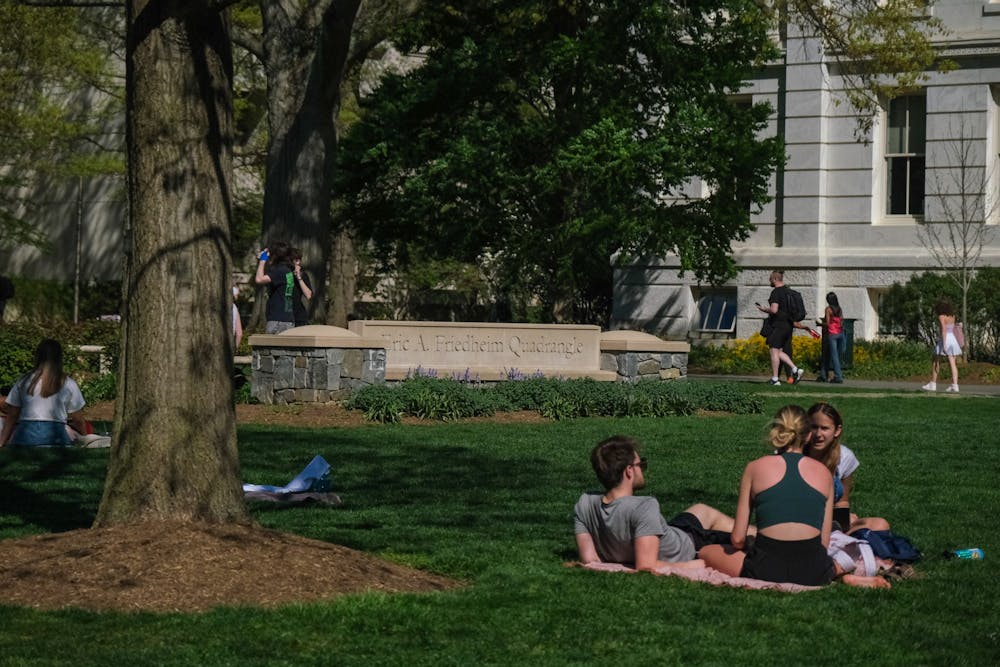Student activists at Georgetown University are calling for an end to legacy admissions, arguing the practice favors wealthy, white applicants and reinforces systemic inequality. Their campaign has gained momentum, with the D.C. State Board of Education passing a bill to consider banning the preference at private universities on Feb. 19.
Hoyas Against Legacy Admissions, a student-led group, formed in July 2023 after the Supreme Court struck down affirmative action. They argue that eliminating legacy preference would promote diversity and level the playing field for college admissions.
While American University has dropped the practice, saying that “AU does not give preference to legacy status in admissions” in a September 2023 campus-wide announcement, Georgetown and George Washington University still continue to consider legacy status, prompting students to demand change.
Ethan Henshaw, an organizer for Hoyas Against Legacy Admissions, called the practice of legacy admissions “affirmative action for the wealthy.” He noted that Georgetown has more students from the “top 1 percent of income earners than the bottom 60 percent combined.”
Felix Rice, Hoyas Against Legacy Admissions co-founder and a recipient of the Pell Grant — a federal financial aid program for low-income undergraduate students — said legacy admissions continue to reinforce structures of privilege.
“This type of university wasn’t built for us,” Rice said, referring to Georgetown. “It benefits those already in power.”
The student-led movement has gained political traction. The D.C. State Board of Education passed a bill co-sponsored by Hoyas Against Legacy Admissions to strip universities of their ability to consider legacy status. If passed in the D.C. Council, this policy would apply to private institutions in D.C., but not Howard University, since it enrolls over 30 percent of Pell Grant recipients.
Asher Maxwell, a Georgetown student leader, said support for the bill is at an all-time high.
“We’re meeting with councilmembers and in the works of forming a coalition of students from AU, GW and Catholic [University] to push for real change,” Maxwell said.
Students sent a letter to Georgetown’s administration, but did not receive a response, according to Henshaw. In the letter, they cited research — including by the university’s own statisticians — warning that maintaining legacy admissions post-affirmative action would not only prevent future growth in the number of underrepresented students but also facilitate a decline. After receiving no response, they launched a petition that gathered over 1,100 signatures, including one from D.C. Congresswoman Eleanor Holmes Norton, a professor emerita.
Darius Wagner, a student organizer with Hoyas Against Legacy Admissions, said diversity strengthens universities, and ending legacy admissions at Georgetown would create a more inclusive student body.
Despite student activism, Georgetown remains committed to legacy admissions. Wagner and Henshaw ran for student government on a platform of admissions reform, arguing that legacy preference is not essential to university funding and only deepens inequities. They won the election, defeating candidates who supported legacy admissions.
Wagner also noted that even some legacy students opposed the practice.
“Georgetown is a privileged school — why are we still keeping barriers that block access?” he said.
Henshaw added that over 38 student-run organizations at Georgetown –– including affinity groups, magazine editorial boards and faculty members –– have backed the movement.
“This fight is bigger than one university,” Wagner said. “If you are reading and care about diversity and fairness in higher education, this fight is your fight, feel free to reach out and know that you have a voice in this campaign.”
This article was edited by Abigail Hatting, Maya Cederlund, Tyler Davis, and Abigail Turner. Copy editing done by Luna Jinks, Olivia Citarella and Nicole Kariuki.





